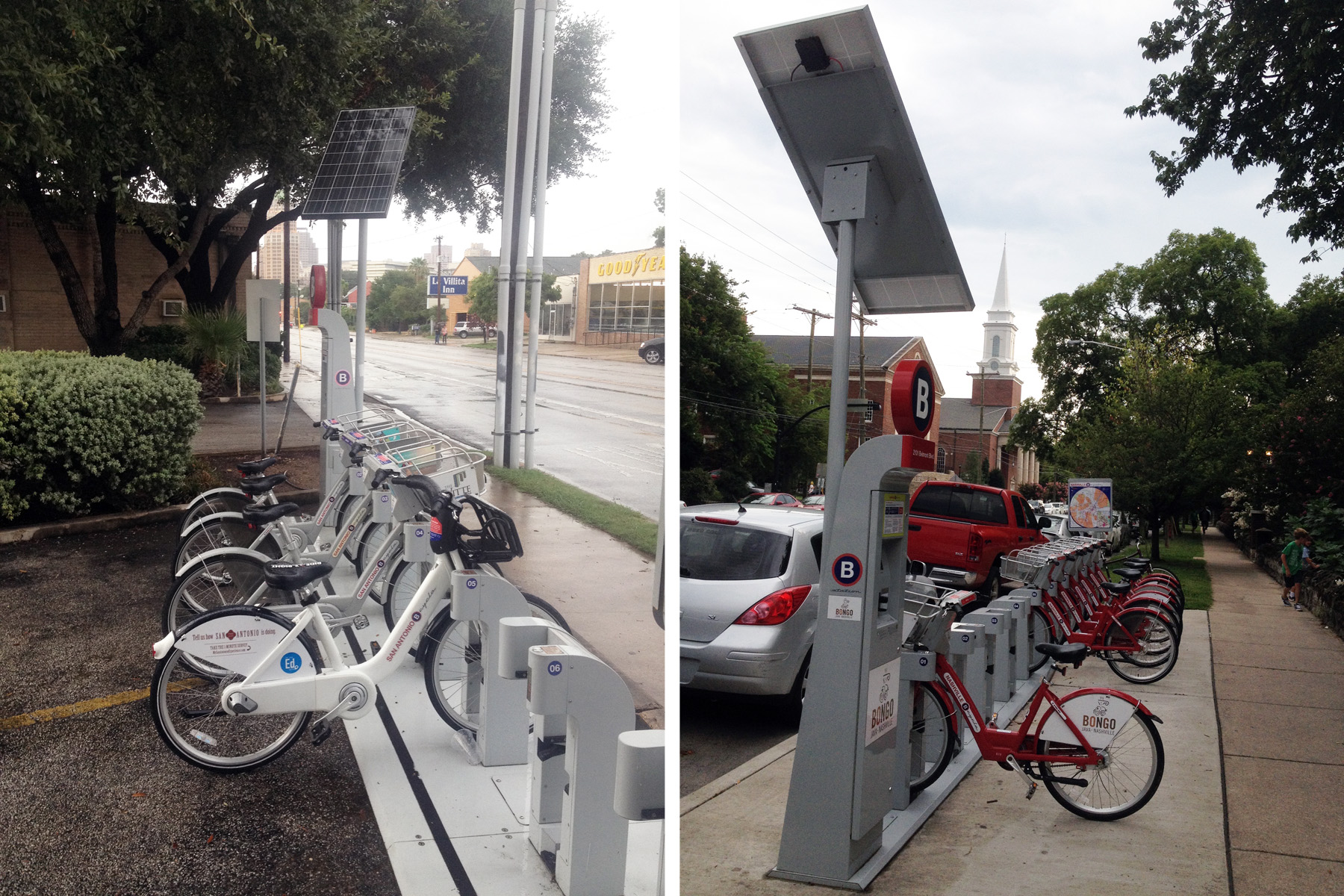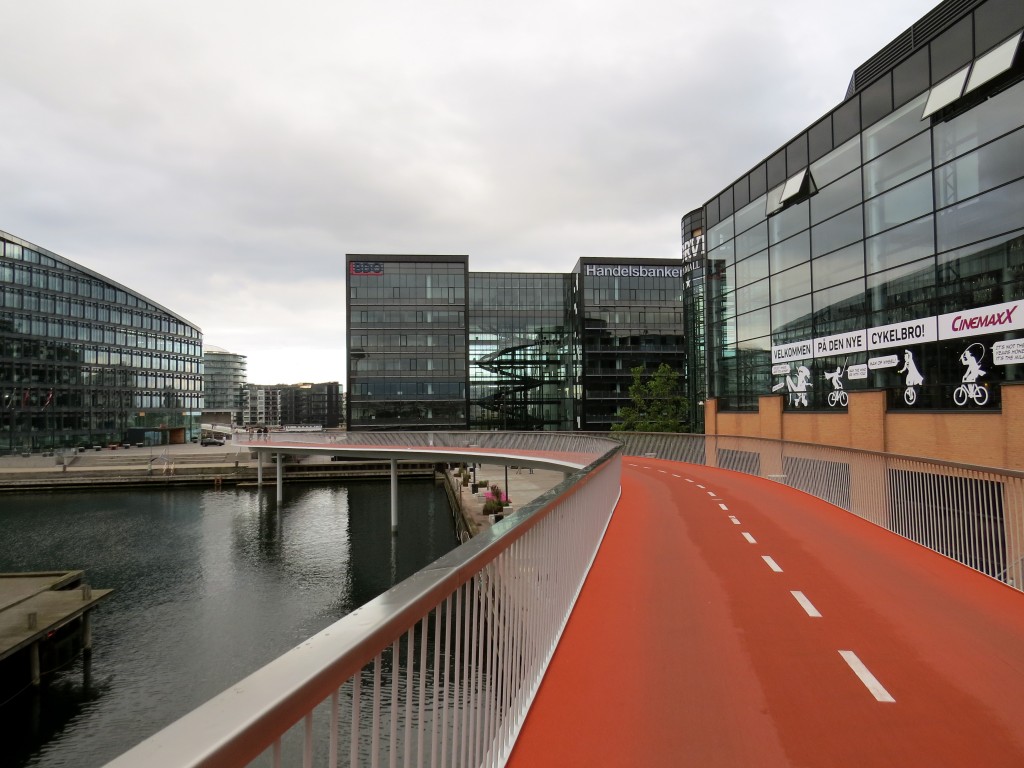
A bike bridge in Copenhagen's city center. (Source: Wikimedia Commons)

A bike bridge in Copenhagen's city center. (Source: Wikimedia Commons)
Living in Denmark made me fall in love with biking as a means of practical transportation; practical, meaning not only for leisure and sport, but also to get to and from work, bring your kids to school, deliver the postage – for just about anything. As you might have read in an article I wrote last fall, Copenhagen’s bicycle culture has been a long time coming. What began in the late 1800s was invigorated in 1907 with the founding of the Danish Cyclists’ Federation (Europe’s oldest cyclist organization). Today, more than 60% of all people who live and work in Copenhagen commute by bicycle everyday. And there are a number of reasons why Copenhageners choose to cycle over driving every day.
Below, I’ve listed 10 ways Copenhagen does biking right:
1. Bike racks everywhere
No more need be said.
2. Bike friendly trains
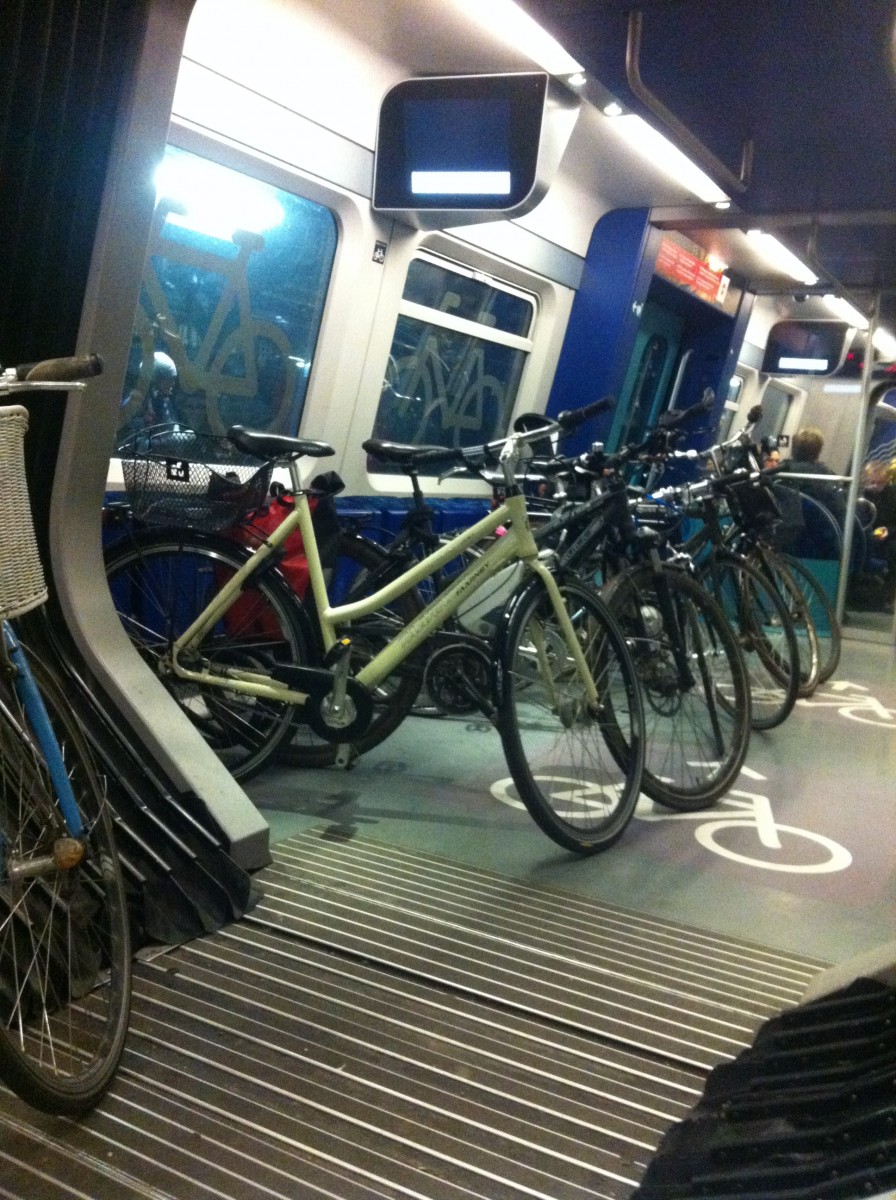
Not only are they bike friendly, but trains are also safe, timely, clean, and extensive — not to mention electric, meaning they source over 40% of their power from renewable energy sources. These trains extend far into the greater Copenhagen area, allowing people to commute to Copenhagen by bicycle, even if they live several kilometers outside of the city center.
3. Christiania bikes, also known as cargo bikes, are everywhere
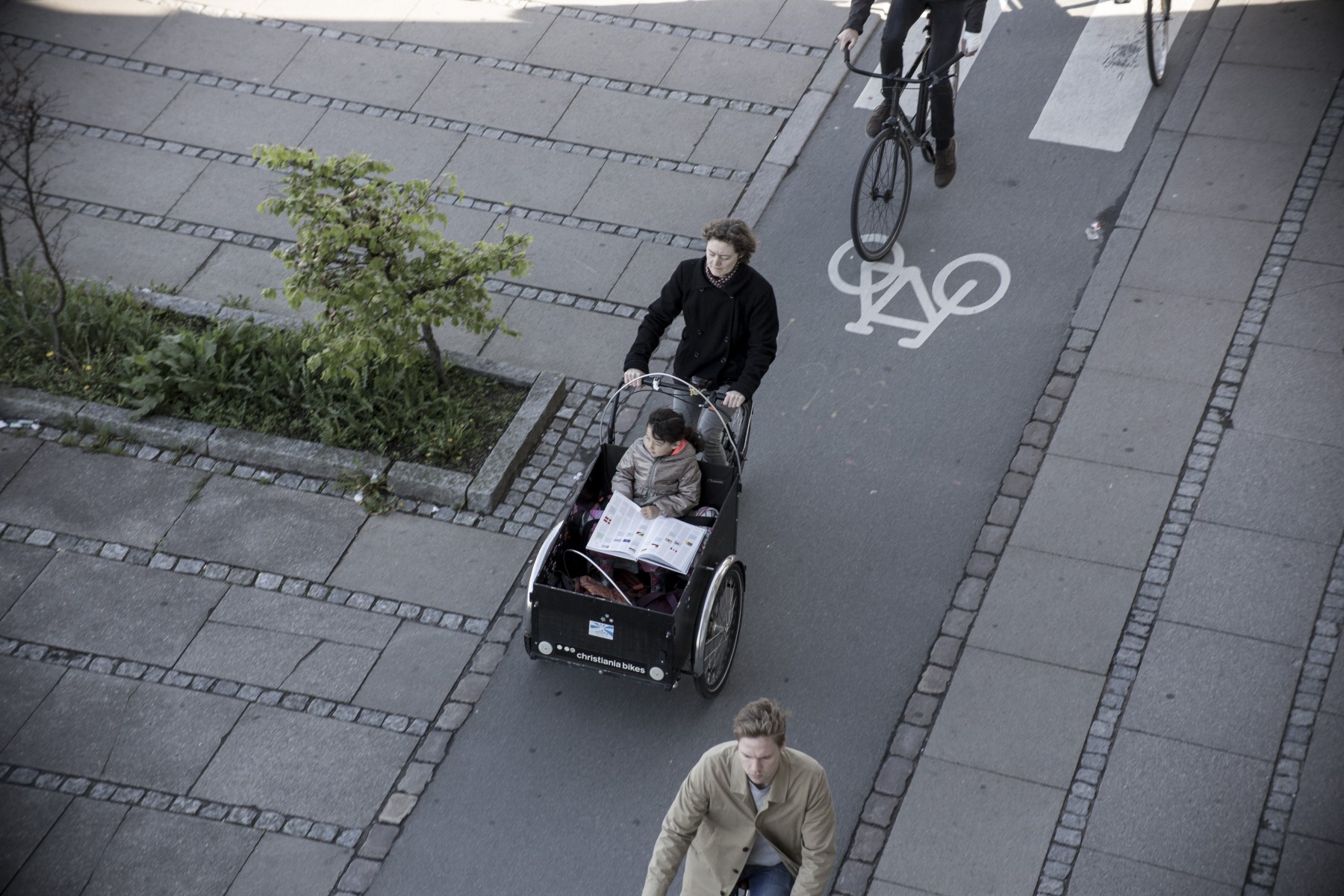
These contraptions are great for bringing your children to school or loading up a hundred pounds of cargo. It’s truly amazing what people carry on these things!
4. Bike shops everywhere
I never went more than two blocks in Copenhagen without passing at least two or three bike shops. I once passed four on a single block.
5. Established bike lanes
This is my greatest praise of Copenhagen’s bicycle infrastructure. Safe, established bicycle lanes are essential for any city that wants to accommodate everyday bikers. In Copenhagen, you will find identifiable bicycle lanes on every street. Separate bicycle lanes provide cyclers with a generous amount of room between them and cars. Makes sense, considering there are nearly 400 km of bike lanes in the city and over 1000 km in the greater Copenhagen area that stretch far into the suburbs, providing rural commuters with a means of cycling into the city everyday for school and work. And unlike many of the ones you’ll find in the US, bicycle lanes in Copenhagen do not disappear after a mile, leaving cyclers to question if it’s safe to continue. This is because the city recognizes that bicycle lanes are just as important as, and arguably more important than (see point number 10), roads for vehicles.
6. Bicycle traffic lights
These are pretty awesome features. They help legitimize cycling as a means of transportation, and helps organize bicycle traffic – essential in a city where so many commute by bike every day.
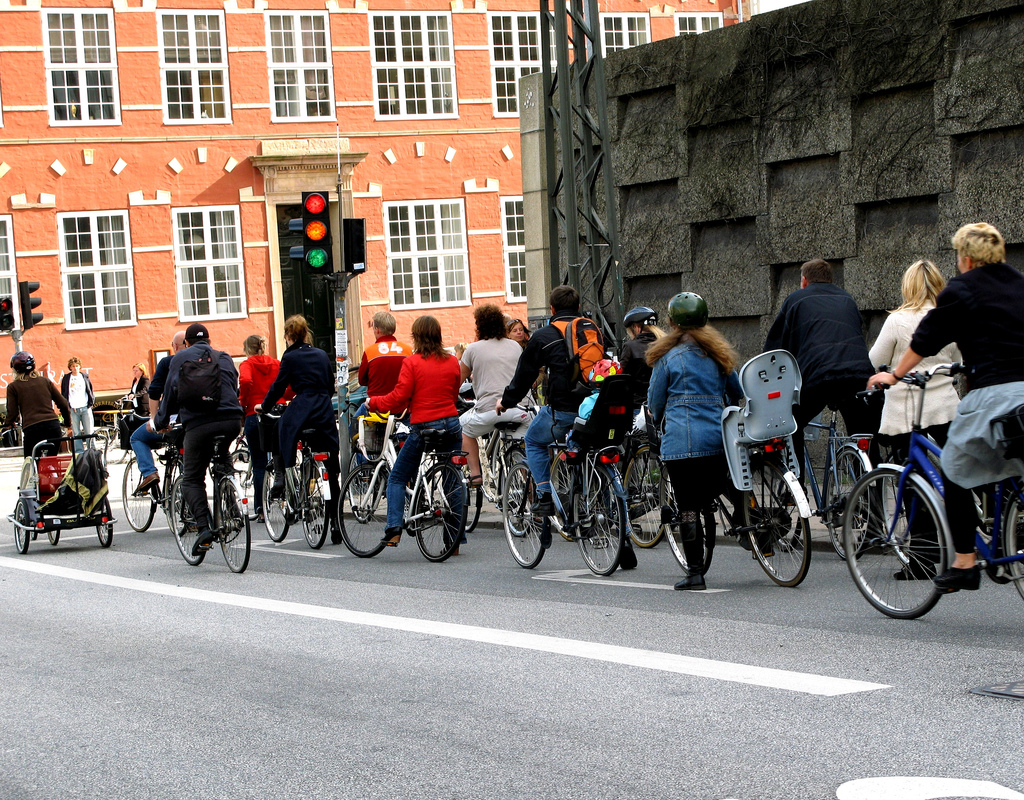
7. Perception of bikers
Not only do Danes make biking look cool, but everyone does it, which makes it much safer and more enjoyable. You’re not just that obnoxious biker dude that everyone’s looking at.
8. Pedestrian-only bridges
By 2050, 9 billion people will inhabit the planet, and a projected 70% of these people are going to be living in cities. With mass urbanization on the horizon, it is essential for cities to begin accommodating accordingly. A key component to this is sustainable urban transit. Over the last 15 years, the Danish government has introduced several initiatives to combat urban congestion. Building pedestrian-only bridges is one way cities can promote sustainable transportation while encouraging healthy, active lifestyles. Many of these exist throughout Copenhagen, and they are freaking awesome. In fact, the city’s newest bridge is pedestrian-only, and it connects two of the city’s main hubs. If you’re in a car, you’re at a disadvantage. For more info on Copenhagen’s urban sustainability initiatives, check out the State of Green’s latest White Paper on Sustainable Urban Transportation.
9. The world’s simplest bike locks
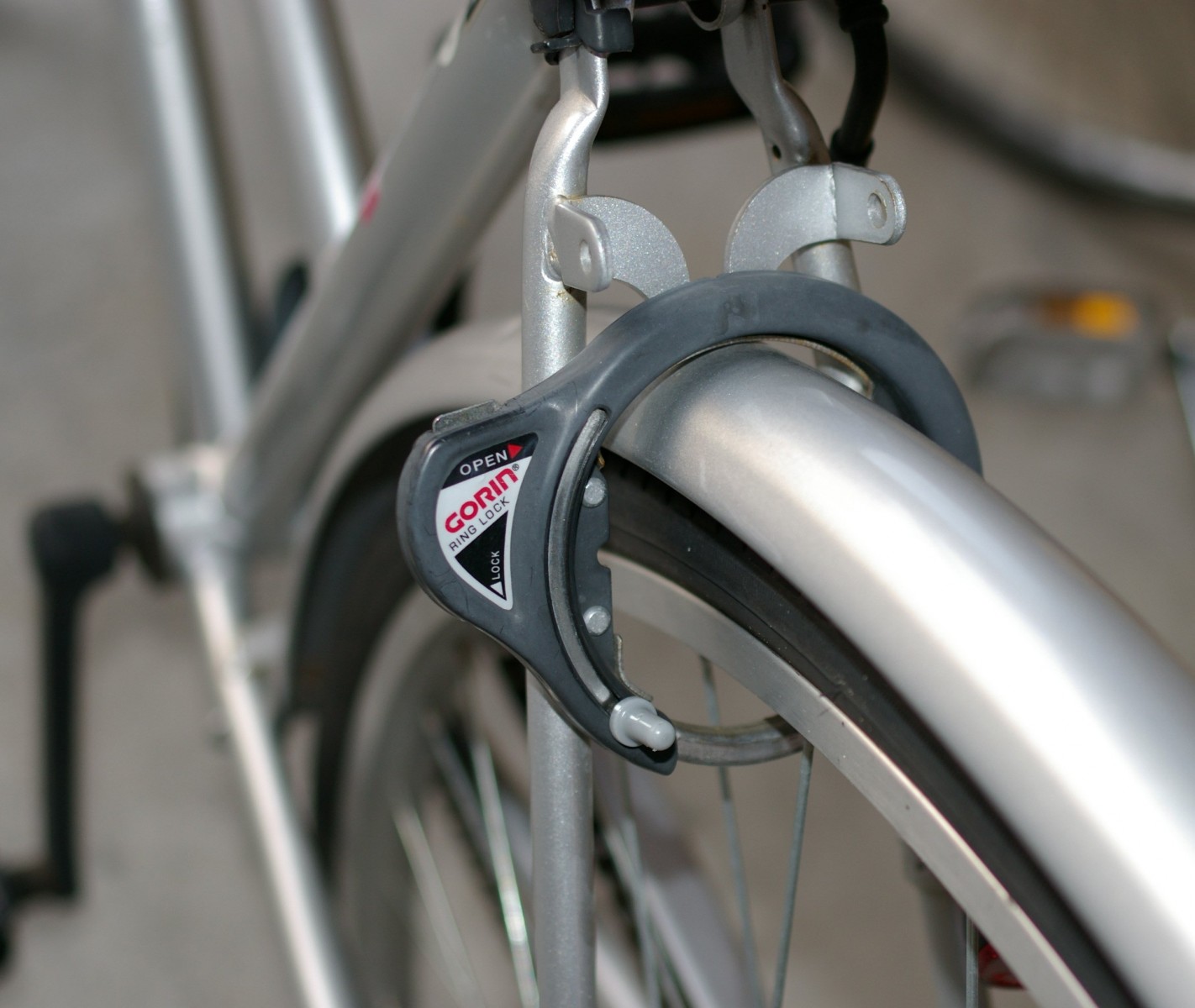
These are pretty representative of Danish society as a whole. A flimsy plastic ring that fits around your back tire is all you’ll need to lock up. The amount of trust and respect for bike riding in Copenhagen is unparalleled.
10. Bike lanes get cleared first
Yet another example of how the city prioritizes cycling. When it snows in Copenhagen, bicycle lanes are the first things to be cleared – not roads for vehicles. Pretty incredible, no?
So, to all our cyclers out there, what can we take from all this? How can we make cities in the U.S. better accommodate bikers? The first step is biking everywhere and anywhere, even if we don’t have spacious bike lanes, and even when the bike lanes discontinue out of nowhere. Without first introducing your friends, coworkers, fellow city dwellers and the local administration to the idea of biking to school, work and the grocery store, their attitude towards biking, and bicycle infrastructure, will not change — as won’t the local government’s. Without an established bicycle-community in your town/city, you can kiss your dreams of bicycle traffic lights goodbye.
Individuals and interest groups like Walk Bike Nashville play a crucial role in changing the perception of biking in cities. It’s clear that many city governments are taking steps to expand their bicycle culture and infrastructure by building bike lanes and bike share programs, but it’s up to us to continue demanding better biking accommodations. So reach out to your local bicycle advocate groups (like Walk Bike), because there are tons out there. And if there isn’t one, consider starting one for your city. Below are some pictures I took from San Antonio, left, and Nashville — the last two cities I visited, both of which had bike share programs called BCycle with stations powered by solar photovoltaics.
